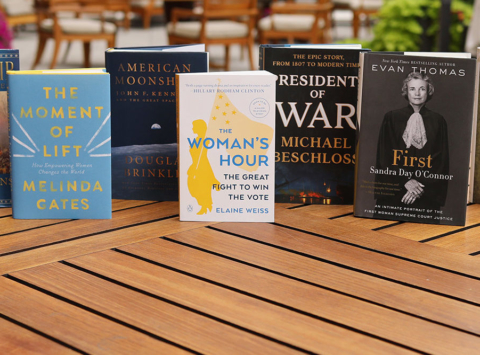This Spotlight is authored by guest writer Caitlin Kelly as part of a special blog series by the Case Foundation featuring Be Fearless stories from the field. Follow along with us as we meet people and learn about organizations that are taking risks, being bold and failing forward in their efforts to create transformative change in the social sector.
Can you make a living—and help others succeed—by failing? Ashley Good, founder of Toronto-based Fail Forward, likes to think so, though it took a lot of personal failure before she figured this out.
Good wasn’t always so easily categorized as a risk-taker. She got her start studying geophysics and environmental science at the University of British Columbia, after which she had the opportunity to work with the United Nations in Cairo—a sobering experience that taught her “how complex the problems are and how inadequate the solutions.” Later, Good worked as a consultant in the oil and gas industry, flying in and out of Fort McMurray, Alberta, and with Engineers without Borders Canada in Ghana. It was when she followed a sweetheart to Ghana that she first encountered risk head-on.
“I ended up heartbroken, unemployed, living in my parents’ basement in Toronto,” she recalls. “Everything I’d poured my heart and soul into hadn’t gone anywhere. I very much needed a way of dealing with failure.” Good was inspired to take on the leadership of writing a report to document the failures of Engineers without Borders Canada.
Her analysis garnered her a lot of attention. As she puts it, “Failure needed me, as well.” Speaking truth to power demanded a special sort of fearlessness, she says, and that report “played a provocateur role. It was taboo to discuss failure openly, especially to the international development sector and especially charities. It was a learning tool.”
Naiveté helped. “I don’t think I appreciated how dangerous it was when I walked into it,” she laughs. “The failure I was describing was not a question of the quality of effort being applied. The entire system is one of power and ego at its heart.” She admits her own role in this: “In Ghana, I saw a problem and wanted to contribute to a solution. I wanted to succeed!”
Today, as she helps others cope with and mitigate their own painful failures, “it actually starts with decoupling ego from activity. The higher up you get in the hierarchy there’s so much at stake, millions of dollars, all those people who believed in you, who believed that you had the answer…”
“My work asks people to talk about their failures which is painful,” she says. “You have to be true to how that feels for you. Failure looks very different depending how much power you have. Your role is key.” Failing is painful because “we tend to build our identities around certain labels: smart, hardworking, personable, successful, etc. Failure often puts those labels into question, so being fearless in the face of failure is difficult if we don’t have an understanding of what we can hold onto that goes deeper than those labels and allows us to remain a healthy, whole human being. We don’t talk about it enough. Our economic contribution is valued above our spiritual or wise selves.”
The fearless piece of Good’s work is often conceptual—breaking long-held and cherished notions of what works. “We have to stop talking about solutions! If the problem we’re trying to solve had a ‘solution’ it would have been done. Instead we often have no idea! We have some little sparks of ideas but we’ll go into these massive complex problems,” sometimes investing a decade of one’s life and work to solving them.
Key to success, says Good, is redefining what it means to fail. “The word failure is an interesting one,” she says. “I don’t think anyone can be truly fearless. At our best and most courageous, we feel our fear and do it anyway. I do love the spirit of fearlessness… Everything we do has elements of failure and success when we’re involved in something complex.”
Good began her work focusing on the non-profit sector, but, as she quickly learned, everyone fails and everyone needs help figuring out what went wrong. Today she works with foundations, grant-makers and governments. “I really moved up to that level quite quickly,” she says. “I started to see that failure wasn’t a non-profit problem, but was really a ‘how we communicate’ problem.”
Key to examining failure without the usual shame-and-blame requires a fresh point of view—using what Good calls blameless post-mortems. With calm, open-minded discussion, failure offers a useful learning tool.
Living with fearlessness is really what Good does, while performing the fundamental work of “transforming our relationship with failure so we can solve complex problems. That’s a pretty audacious goal! There’s always a tension between optimism and clarity of which path to take.”
Feeling inspired? If you’re ready to begin your own Be Fearless journey start by downloading our free Be Fearless Action Guide and Case Studies.





